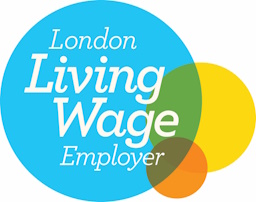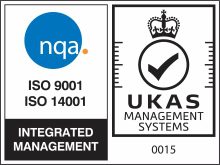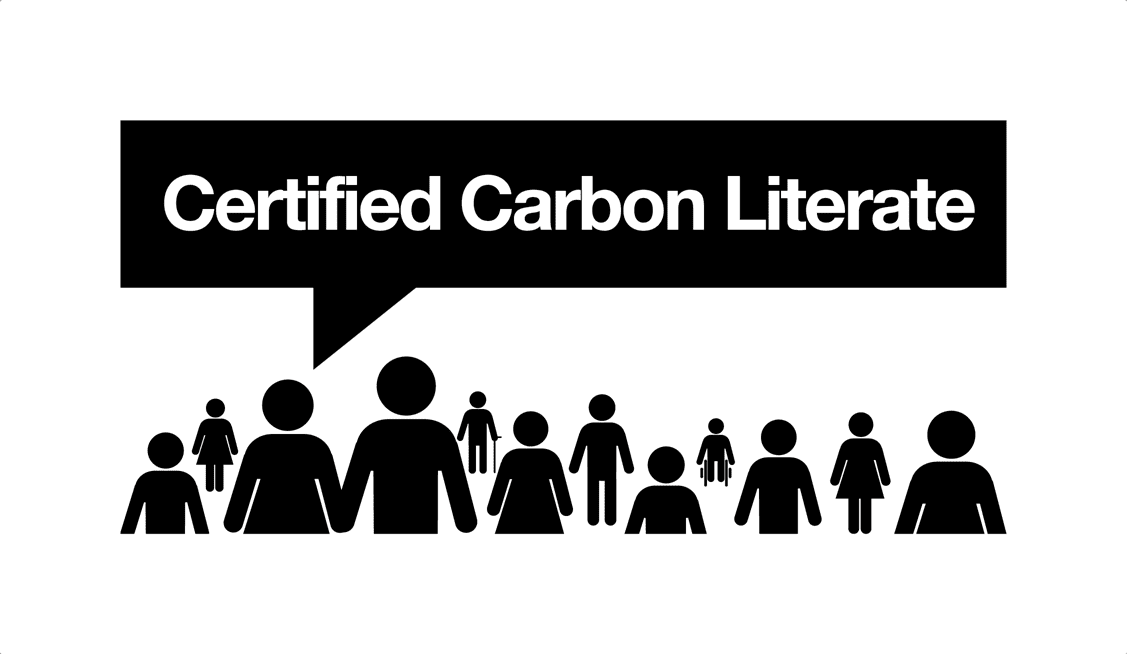News
PM announces ‘largest and most severe package’ of trade sanctions on Russia.
Russia’s invasion of Ukraine, which began in the early hours of yesterday morning, has stirred the UK to impose the “largest and most severe package of economic sanctions that Russia has ever seen” that would “hobble” the country’s economy, Prime Minister Boris Johnson told MPs at 5pm yesterday.
As the invasion of Ukraine unfolded across the day, Johnson gave some detail on planned sanctions – focusing mainly on the finance, defence and technology sectors – with more to follow in the coming days.
Export Support Service Expanded
Johnson’s statement to the House of Commons came as the Government said it will be expanding its Export Support Service to help businesses trading with Russia and Ukraine to deal with the invasion’s trade implications. He urged businesses worried about trade to contact the service.
The Export Support Service helpline, contactable on 0300-303-8955, has had its hours extended through to the end of the weekend, from 08:00 – 22:00 Thursday-Sunday inclusive.
Alternatively, companies can access the ESS landing page which also features a dedicated link for Ukraine and Russia enquiries.
Not all exports to Russia have been sanctioned, however, sanctions do include:
– Dual-use export licences to Russia covering components that can be used for military purposes to be suspended
-Legislation to prohibit a wide range of hi-tech exports to Russia, including semiconductors, aircraft parts and oil refinery equipment
Further sanctions include:
– Legislation to prohibit Russian companies from raising finance on UK markets
– Sanctions against more than 100 individuals, entities and their subsidiaries
– An imminent ban on the Russian airline Aeroflot
Detailed information on the full range of sanctions can be read here.
At the Chamber, we are still processing Export Documentation for non-sanctioned goods to both Ukraine and Russia. Our International Trade Team can be contacted here.
We will of course keep you updated on the rollout of sanctions and any counter-sanctions imposed by Russia on the UK.
Our thoughts are with the people of Ukraine at this most difficult time.
An update on developments in Ukraine
Everyone at Staffordshire Chambers hopes there will soon be a peaceful resolution to the situation in Ukraine. Our thoughts are with all those affected in Ukraine and across our Global Network.
A full-scale attack was launched by Russia on Ukraine in the early hours of this morning. Revised UK sanctions on Russia were announced earlier this week. These will be strengthened during the day. We will provide further updates as they become available.
The Department for International Trade (DIT) recommend that concerned companies trading with Ukraine and Russia contact the Export Support Service (ESS) on 0300-3030-8955. The ESS helpline hours are being extended between now and the end of the weekend, from 08:00 – 22:00 Thursday-Sunday inclusive. DIT will review this on Monday to examine the case for out of hours provision. Alternatively, companies can access the ESS landing page which also features a dedicated link for Ukraine and Russia enquiries.
EU sanctions came into force late last night, including import bans from Donetsk and Luhansk, and export bans on selected goods and services to those territories. These will apply to EU commercial entities.
The British Chambers of Commerce is assessing the business impact and has written to the UK government today to ask about the support available for business. We will provide further information as and when we receive it from UK government.
You can contact the Chambers’ International Trade team, here.
- Published in News
Policy Spotlight with Rhouda: PM announces ‘Living with Covid’ Plan
The Prime Minister is set to announce his plans to remove all remaining Covid legal restrictions in England, including the requirement to isolate. Boris Johnson stated that the plans to remove all restrictions “will return people’s freedom” and bring society “towards a return to normality.”
Downing Street has confirmed that anyone who tests positive, and any of their close contacts will no longer have to self-isolate by the end of the week. No.10 have also said that the success of the Covid vaccination programme had put England in a “strong position to consider lifting the remaining legal restrictions.”
The Prime Minister has also set out a timetable for the scaling back on the availability of free coronavirus tests, with the exception of older and vulnerable people as they will continue to have access to them.
Sara Williams, CEO of Staffordshire Chambers of Commerce, said: “The decision to remove the remaining covid restrictions won’t come as a surprise to many as the government have made it clear that living with covid will be the end goal. The news will also come as a relief to many businesses as they can return to normal working conditions and will be less likely to face staff shortages or a decline in consumer spending in the retail and hospitality sectors.
“Despite this, some businesses will be apprehensive to adjust to the new normal as they feel a duty to protect their staff and provide a safe working environment. The pandemic is not over, and as the government begin to re-open the country to a pre-pandemic lifestyle it is now more important than ever for as many people as possible to be fully vaccinated, for their own safety.”
For people to feel confident again and to be able to ‘live with Covid’ it is essential that businesses are provided with a free supply of test kits; this will also aid the UK in shifting the balance towards personal responsibility, allowing people to feel safe and protected whilst going into work. Many firms trialled hybrid and remote working throughout the pandemic and have found it successful. More staff members may feel comfortable working from home especially as there is no obligation for other staff members to self-isolate if they have tested positive.
For business guidance on implementing hybrid or remote working or for HR advice on staff safety and wellbeing, get in touch with sonia.bhattle@staffordshirechambers.co.uk.
- Published in News
Sara’s Blog: Post Brexit EU trade deal findings and quarterly economic survey
There is an urgent need to ease the burden of new legislation following Brexit for our exporters. Recent research across the British Chambers of Commerce network shows there are issues with the EU trade deal that need to be improved. Nearly all the businesses in this research have fewer than 250 employees and these smaller firms are feeling most of the pain of the new burdens in the Trade and Co-operation Agreement (TCA).
Many of these companies have neither the time, staff, or money to deal with the additional paperwork and rising costs involved with EU trade, nor can they afford to set up a new base in Europe or pay for intermediaries to represent them. The issues appear to be on both sides of the Channel with barriers on the Continent as ports seem to have been unprepared.
But if both sides take a pragmatic approach, they could reach a new understanding on the rules and then build on that further.
• 71 per cent of exporters say EU trade deal is not enabling them to grow or increase sales
• Only 1 in 8 exporters think it is helping them grow or increase sales
• Majority think it has pushed up costs, increased paperwork, and delays, and put the UK at a competitive disadvantage.
Overall, just eight per cent of firms agreed that the Trade and Co-operation Agreement (TCA) was ‘enabling their business to grow or increase sales’, while 54 per cent disagreed. For UK exporters 12 per cent agreed that the TCA was helping them while 71 per cent disagreed.
When asked to comment on the specific advantage (for those that agreed) or disadvantage (for those that disagreed) of the trade deal, 59 firms identified an advantage, while 320 cited a disadvantage.
Staffordshire Chambers support the UK Government’s ambition to massively increase the number of firms exporting. If we can free up the flow of goods and services into the EU, our largest overseas market, it will go a long way to realising that goal.
The research, with responses from over 1,000 businesses, has highlighted a host of issues with the UK’s trade deal with Europe. The BCC believes urgent steps should be taken to address these problems so the UK Government’s ambition to increase the number of firms exporting can be met and have five key issues:
1. Export health certificates cost too much and take up too much time for smaller food exporters.
SOLUTION: We need a supplementary deal on this which either eliminates or reduces the complexity of exporting food for these firms.
2. Some companies are being asked to register in multiple EU states for VAT in order to sell online to customers there.
SOLUTION: We need a supplementary deal, like Norway’s with the EU. This exempts the smallest firms from the requirement to have a fiscal representative and incur these duplicate costs.
3. As things stand CE marked industrial and electrical products will not be permitted for sale on the market in Great Britain from January 2023. The same is true for components and spares.
SOLUTION: We need action from the Government to help businesses with these timelines. Many firms are far from convinced about a ban on CE marked goods in Great Britain.
4. UK firms facing limitations on business travel and work activities in the EU.
SOLUTION: Government needs to make side deals with the EU and member states to boost access in this area as a priority for 2022.
5. Companies starting to be pursued in respect of import customs declarations deferred from last year.
SOLUTION: We need a pragmatic approach to enforcement to ensure companies recovering from the pandemic do not face heavy-handed demands too quickly on import payments, or paperwork.
If you want to know anything about trading overseas – from strategies to expertise on the documents you need – you can get help from our international trade team: International Trade – Staffordshire Chambers.
Our latest Quarterly Economic Survey is now open
This is one of the most important times for businesses across Stoke-on-Trent and Staffordshire to complete the Quarterly Economic Survey (QES). The information you provide will help to shape and influence current policy as the data is shared with the BCC, government departments including HM Treasury and the Cabinet Office as well as the Bank of England.
We are keen to hear from firms of all sizes (starts-ups, sole traders, SMEs, medium-sized and large corporations) as it helps to create an accurate picture of the current business landscape. If you could spare just a few minutes to fill in the survey it would be greatly appreciated.
If you want to talk to us about any business issues, including funding, you can call our switchboard on 01782 202222 or call the Stoke and Staffs Growth Hub Helpline on 0300 111 8002 or email: info@staffordshirechambers.co.uk
- Published in News
Policy Spotlight with Rhouda: Latest ONS Trade Figures
The latest GDP figures reported by the Office for National Statistics (ONS) have shown a decrease as the Omicron wave hit in December, leaving retail and hospitality sectors seeing the biggest impacts.
Services output was down by 0.5% in December 2021 while production rose by 0.3% and construction rose by 2.0%. Despite the decrease in services output, both services and construction were above pre-pandemic levels. Output in consumer-facing services fell by 3.0% and this was mainly driven by a 3.7% decrease in retail trade while all other services rose by 0.1%.
Real gross domestic product (GDP) is estimated to have fallen by 0.2% in December 2021. The ONS report identified that businesses in the services sector were the main contributor to GDP’s 0.2% fall.
Sara Williams, CEO of Staffordshire Chambers of Commerce, said: “As the government continue to remove restrictions, it is essential that the right kind of support is provided to businesses. Firms in the hospitality and retail sectors faced great difficulties in the last quarter of 2021 and will continue to struggle under current circumstances with rising inflation, increasing national living wage, increasing national interest rates and rising energy costs.
“In the latest government announcement, it was revealed that households would be supported in dealing with rising energy bills. However, there was no mention of similar policies being put in place for businesses. We would urge government to act quickly so that the country can progress economically.”
Our first Quarterly Economic Survey for 2022 is now live and invites businesses to share their views on the challenges being faced within their industry. This is a great opportunity for us to get a better insight into how businesses have been impacted by recent government announcements and policies and what changes need to be made to help with the UK’s economic progression.
We want to represent businesses in the region. By filling out QES for Q1 of 2022 you can help shape and influence policy thinking. Data from the QES is shared with the British Chambers of Commerce, government departments and the Bank of England. Have your say by filling in the survey here.
Environmentally Conscious Staffordshire Campaign
Last week we were proud to launch our latest campaign in our ‘Environmentally Conscious Staffordshire’ series. Our carbon literacy campaign aims to support businesses develop a greater understanding of the ways in which they can measure their carbon footprint as well as the changes they can make in order to achieve the goal of becoming carbon neutral by 2050.
In order to provide the most effective business advice, we have partnered up with a few of our members to find out how they have managed to reduce their carbon footprint and create an environmentally friendly and sustainable business. To find out more, click here.
If you require any business support or advice, get in touch with Staffordshire Chambers of commerce on 01782 202222 or email info@staffordshirechambers.co.uk.
- Published in News
Guest blog with International Trade: How we’re working towards SDG #16.
Head of International Trade at the Chamber, Rob Lawley, has written a guest blog to explain how the trade team incorporate SDG 16, Peace, Justice and Strong Institutions, into their daily operations to help make the world a safer place.
Peace, Justice & Strong Institutions is the 16th Sustainable Development Goal (SDG) which permeates through many aspects of International Trade and where the Chamber plays a crucial role.
The Chamber will process thousands of Export Documents for local companies each year, with an invoice value totalling over £200m. Many of these goods require an export licence meaning their sale is controlled by Government. Some goods, as one would imagine, are going to require an export licence, for example, military and paramilitary goods. The UK has some of the best companies in the world manufacturing goods in this sector. A recent report suggested that the UK defence sector supports 260,000 jobs and the Government spends £20bn annually in this sector alone.
What’s not obvious are products termed ‘Dual Use Goods’. Many of these products are entirely innocent but there is a very large list of products that fall into this category, some quite surprising for example; computers and software.
So where do we come in? It’s our role to check that all the goods for which we process export documentation and/or customs clearance have the correct licence. This is perhaps one of the most important parts of role. We will not issue the correct documentation or clear goods for export until we are 100% certain that the company is legitimate and has valid licences in place.
Part of our consultancy role is to work with companies, advise them on what type of export licence is required and, in some cases, help them to apply for the licence(s) using the SPIRE platform which is used by the Export Control Joint Unit (ECJU).
In addition to the Chamber monitoring export licences, we are also mindful of companies trading with countries where the UK Government or the United Nations has imposed sanctions. There are many types of embargos, sanctions and other trade restrictions relating to different markets across the world. To us, whenever certain countries are mentioned such as Somalia, Syria, Iran we automatically become cautious but other areas, not in the headlines, are also subject to sanctions for example Argentina and Cape. In many cases exporting is not ‘banned’ from countries with embargos/sanctions, but we have to ensure that only permitted goods are shipped to certain countries. To emphasis this in 2021 we processed goods worth over £5m being shipped to Iran.
Our diligence and monitoring of exports ensures that we are playing our part in this particular SDG and helping to make the world a safer place.
Find out more about SDG 16, here. Or, to contact the Chambers’ International Trade team, click here.
- Published in News
Sara’s Blog: Looking back at National Apprenticeship Week 2022 and the lifting of Covid restrictions
All this week we have been busy with our events as part of National Apprenticeship Week 2022, the 15th annual week-long celebration of apprenticeships.
The week brings together businesses and apprentices across the country to shine a light on the positive impact that apprenticeships make on individuals, businesses, and the wider economy.
Businesses of all sizes emerging from the pandemic need a skilled workforce and don’t want to lose out on the next generation. Government is more invested than ever before in apprenticeships and surveys also show that most young people would now consider an apprenticeship.
We have been working alongside Chamber patrons Staffordshire University and scores of local businesses to highlight what a fantastic contribution apprentices can make to a business and how apprentices go on to be our future workforce, management, and leaders.
The theme for National Apprenticeship Week 2022 has been ‘build the future’; reflecting on how apprenticeships can help individuals to develop the skills and knowledge required for a rewarding career, and businesses to develop a talented workforce that is equipped with future-ready skills.
World class apprenticeships, which have fared well overall through the pandemic, are a fantastic tool for levelling up and must underpin opportunities for all. They are available at four levels, starting with intermediate, equivalent to five GCSEs, up to degree level.
The government has pointed the way forward for levelling up opportunities for everyone across the country and apprenticeships and skills training will be vital to that. National Apprenticeship Week is the perfect opportunity to shout from the rooftops about all the incredible opportunities that apprenticeships now provide to get a foot on the careers ladder and progress to the top.
One of the highlights of the week was our open meeting with a panel of professional people who are involved with apprenticeships. The panel consisted of Gareth Higgins MBE – group managing director of KMF Group, Steve Tellwright – HR director of Capula and Katy Chesters – business development manager for apprenticeships employer partnerships at Staffordshire University.
Chamber patrons KMF Group set up their own apprenticeship scheme, with an in-house apprentice school several years ago and it has been recognised both regionally and nationally as an example of best practice.
As well as all the traditional trades, apprenticeships now train tomorrow’s economists, nurses, aerospace engineers, countryside rangers, brewers, laboratory scientists, graphic designers and even archaeologists up to degree level. The possibilities are endless.
Although many businesses have found it tough, apprenticeship uptake remained strong throughout the Covid-19 pandemic. There was just a 0.3 per cent fall last year and recent figures show they are recovering to pre-Covid levels.
Nationally, vacancies doubled last November compared to the year before, which shows employers are also now working hard to recruit.
Apprenticeships have extremely high satisfaction rates with employers (85 per cent) and they generate a lot of loyalty among the trainees. There are over 640 apprenticeships to choose from covering a massive variety of jobs.
They are also a great tool for young people to get a foot on the employment ladder. Around half of those who started on apprenticeships last year were aged over 25 and nationally the number of economically inactive young people has gone up by over 100,000 since the start of the pandemic.
You can find out more about what apprentices can do for your business at the following links:
Hire an apprentice
Apprenticeship courses – Staffordshire University
Apprenticeships – Keele University
Find out about Apprenticeships | Buxton & Leek College (blc.ac.uk)
NSCG | Apprenticeships
Apprenticeships – South Staffordshire College (southstaffs.ac.uk)
Apprenticeships at Stoke on Trent College – Stoke-on-Trent College :Stoke-on-Trent College (stokecoll.ac.uk)
The lifting of Covid restrictions
On Wednesday the PM announced that all remaining Covid restrictions, including the legal rule to self-isolate could be lifted a month earlier than planned.
Under the current rules, anyone who tests positive must self-isolate for at least five days.
The current restrictions are due to expire on 24 March, but Mr Johnson told MPs he expected the last domestic rules would end early if the positive trends in the data continued. He said he intended to return after parliamentary recess – which runs from Thursday to 21st February – to outline the government’s strategy for living with Covid.
The trends are positive – hospital cases are continuing to fall, and the huge wave of infections caused by Omicron has not pushed overall deaths above what would normally be seen in winter.
But this decision has still taken most by surprise and with infection levels still high and it’s unclear what this will do to the spread of the virus.
However, not every infected person was self-isolating anyway and in recent months the testing system has only picking up half of all infections – at the peak it was missing around an estimated 200,000 cases a day. In addition, about one in five of those who test positive do not fully adhere to the self-isolation requirements.
We are fast approaching the point where it treats Covid like any other respiratory illness.
The move is also likely to pave the way for the dismantling of the community testing system, with many experts believing tests will soon only be used in settings such as care homes and hospitals – or to deal with major outbreaks.
If you want to talk to us about any business issues, including funding, you can call our switchboard on 01782 202222 or call the Stoke and Staffs Growth Hub Helpline on 0300 111 8002 or email: info@staffordshirechambers.co.uk
- Published in News
Policy Spotlight: The Cost of Living and the low-carbon energy strategy
Last week, the Office of Gas and Electricity Markets (Ofgem) announced an increase of 54% in the price cap which will take effect from 1 April 2022. The increase means that people on default tariffs paying by direct debit will see a rise of £693 from £1,277 to £1,971 per year. Prepayment customers will see a rise of £708 from £1,309 to £2,017.
The price cap is put in place in order to stop energy companies from making excessive profits as well as ensuring that customers pay no more than a fair price for their energy. The increase is driven by a record rise in global gas prices over the last six months, especially as wholesale prices have quadrupled within the last year. In April, energy companies will be able to pass on these higher costs onto customers as they cannot afford to supply electricity and gas to customers for less than they have paid for it.
Sara Williams, CEO of Staffordshire Chambers of Commerce said: “The lack of support announced for businesses who will be struggling to keep up with the rising costs of energy prices, inflation and cost of raw materials is disappointing. Smaller firms don’t have the protections or financial support which has been provided to households, nor do they have the negotiating power of larger businesses.
“Businesses will be left with no choice but to pass these costs onto their customers in the form of price rises which will further fuel the cost-of-living crisis as well as drive surging inflationary pressure. Chambers across the network have urged the government to provide the necessary measures to support businesses which will, in turn, support the economic growth of the economy.”
It is now crucial that the government uses the Chancellors rebate and clawback scheme for small firms as well as delay the impending rise in national insurance in order to support businesses who are facing extreme pressure.
If you are facing any challenges due to the energy crisis or would like further information or advice, get in touch with rhouda.elalfy@staffordshirechambers.co.uk.
The government must now push its low-carbon energy strategy by supporting the economy on issues such as energy efficiency and securing suitable energy storage which will stabilize energy prices in the future. The strategy aims to reduce energy demand and prioritises choosing low carbon solutions in order to minimise the impacts of climate change and to reduce operating costs.
Reducing carbon emissions can often help businesses save time and money as well as help them to play their part in creating a greener and healthier world. Staffordshire Business and Environment Network (SBEN) have created a carbon tracker tool to help assist businesses with tracking and implementing actions to reduce carbon emissions. You can find out more by clicking here.
Businesses can now also apply to take part in SBENs Carbon Literacy Training by clicking here.
For further information on carbon literacy and creating a low-carbon energy strategy for your business, get in touch with alison.landon-gallimore@staffordshirechambers.co.uk.
- Published in News
Sara’s Blog: Levelling Up strategy announcement
Following on from the Conservative Government’s levelling up manifesto promise from 2019, the government have this week finally unveiled their plans.
The strategy, presented by Levelling Up Secretary, Michael Gove, will take until 2030 to deliver its objectives which include improving services such as education, broadband and transport. Mr Gove said it would “shift both money and power into the hands of working people”.
I spoke at a Levelling Up event hosted by The Institute for Government earlier this week, at which the main discussion was around how the private sector can get involved with this ambitious project. Government is, as we know, short of cash and will therefore, be looking to the private sector to support the agenda. As there is such an emphasis on social improvements, there was also an emphasis on the role of social investment in improving ‘left-behind’ areas.
You can watch a video of the event where I spoke alongside Kevin Hollinrake MP, Stephen Muer and John Wrathmell, below.
The Government has previously launched several schemes aimed at boosting regional development and Mr Gove’s plans would bring all existing initiatives together into 12 “national missions” and set up a system for measuring progress. Among the 12 missions are promises to refocus education spending on disadvantaged parts of the country and eliminate illiteracy and innumeracy; bring the rest of the country’s public transport closer to London standards, and provide access to 5G broadband for the “large majority” of households. Derelict urban sites in 20 towns and cities will be targeted for redevelopment intended to create more high-quality jobs. The first places to be selected for this development are Wolverhampton and Sheffield.
The 12 levelling up missions are:
• Increase pay, employment and productivity in all areas of the UK, with each one containing a “globally competitive city”
• Raise public investment in research and development outside the south-east of England by 40 percent
• Eliminate illiteracy and innumeracy by refocusing education spending on the most disadvantaged parts of the country
• Increase the number of people completing high quality skills training – in England, this will mean 200,000 more people a year
• Bring the rest of the country’s public transport “significantly closer” to London standards
• Provide access to gigabit-capable broadband nationwide by 2030 and 5G mobile data coverage for the “large majority” of households
• Create more first-time homebuyers in all areas, and reduce the number of “non-decent rented homes” by 50 percent
• Narrow the gap of healthy life expectancy between the areas where it is lowest and highest
• Improve “well-being” in every area of the UK
• Increase “pride of place”, such as people’s satisfaction with their town centre and engagement in local culture and community
• Reduce murder, manslaughter, serious violence and neighbourhood crime, especially in the worst-affected areas
• Give every part of England that wants it a devolution deal with more regional powers and simplified, long-term funding
The danger for areas such as Staffordshire is that we fall between major regional conurbations such as the West Midlands and Greater Manchester. It will take more than a few million pounds for example to make Staffordshire’s beleaguered public transport infrastructure ‘significantly closer’ to London standards although there is money promised to Stoke-on-Trent to do this. We will be working tirelessly to ensure that Staffordshire receives full advantage from the levelling up strategy. Working across all sectors with a coordinated approach and urging our MPs to ensure our voice is heard in Westminster and that government takes the necessary action to unlock private and social investment.
It is a time for us all to step up and show leadership to really make sure that Stoke-on-Trent and Staffordshire levels up and that others recognise our potential and that, in particular, businesses here have so much to offer in providing prosperity and opportunities for everyone here.
In the meantime, if you have any concerns or issues around the subject, please contact Rhouda Elalfy at the Chamber rhouda.elafy@staffordshirechambers.co.uk
If you want to talk to us about any business issues, including funding, you can call our switchboard on 01782 202222 or call the Stoke and Staffs Growth Hub Helpline on 0300 111 8002 or email: info@staffordshirechambers.co.uk
- Published in News, Uncategorized
Policy Spotlight with Rhouda: The Energy Crisis and Post-Brexit trade
As tensions continue to rise between Russia and Ukraine, there has been increased fears over Europe’s gas supply crisis becoming much worse. Russia is Europe’s largest supplier of gas, with one third flowing through Ukraine’s pipeline to countries across the continent, therefore, a Russian invasion of Ukraine would mean that there is a high chance of gas exports being cut.
The last few months have seen gas market prices increase significantly, surpassing record highs and threatening both domestic and business use. The rise in energy costs alongside the list of other pressures that businesses are currently facing has created fear amongst many firms.
In a letter to Rishi Sunak, the heads of CBI, the British Chambers of Commerce, the Institute of Directors, Make UK, and the Federation of Small Businesses said that the surge in domestic and business bills would negatively impact the economic recovery of the UK. All five businesses have demanded that the government act urgently and decisively in order to support consumers with their spiralling bills. It is essential that businesses are supported whilst managing their cashflow due to the increase in inflation and raw material cost.
Sara Williams, CEO of Staffordshire Chambers of Commerce said: “The pressures that firms are currently facing are insurmountable. Businesses need to be relieved of the overwhelming financial demands, especially as restrictions have now been removed. By securing a stable supply of energy and gas, businesses and consumers will be relieved of the increase in living costs that they are currently facing.
“The scale of this crisis is leaving firms with little protection as they deal with inflation, a surge in the cost of raw materials and tax increases. Many firms in the manufacturing and ceramics sectors have explained to us that they have little choice but to pass these cost increases onto their customers, which is adding further inflationary pressures.”
Staffordshire Chambers of Commerce is prioritizing supporting businesses towards decarbonising in order to achieve the government’s target of reaching net zero by 2050. Businesses can continue to compete in the global market by improving their environmental and social performance. Affordable and low-carbon energy options are crucial in order to support businesses in reducing their carbon footprint. In addition to this, cutting costs and carbon through improved energy practice can also support firms through the energy crisis.
Post-Brexit Trade:
The last six months have demonstrated that there are significantly lower EU imports to the UK compared to three years ago, with a smaller reduction in exports to the EU. The British Chambers of Commerce has reported that exporters are uniquely facing a wide range of issues, from unprecedented inflationary pressures as well as a global supply chain crisis and a range of new requirements following the EU trade deal.
23% of firms surveyed said that finding a businesses partner or distributor overseas would encourage them to start exporting or to export more. 16% of firms have explained that they require support with trade documentation would encourage them to increase the amount of business they do overseas.
The British Chambers of Commerce have released their new Trade Manifesto which aims to expand and diversify the number of exports from the UK across the world. You can find out more information by clicking here.
- Published in News











